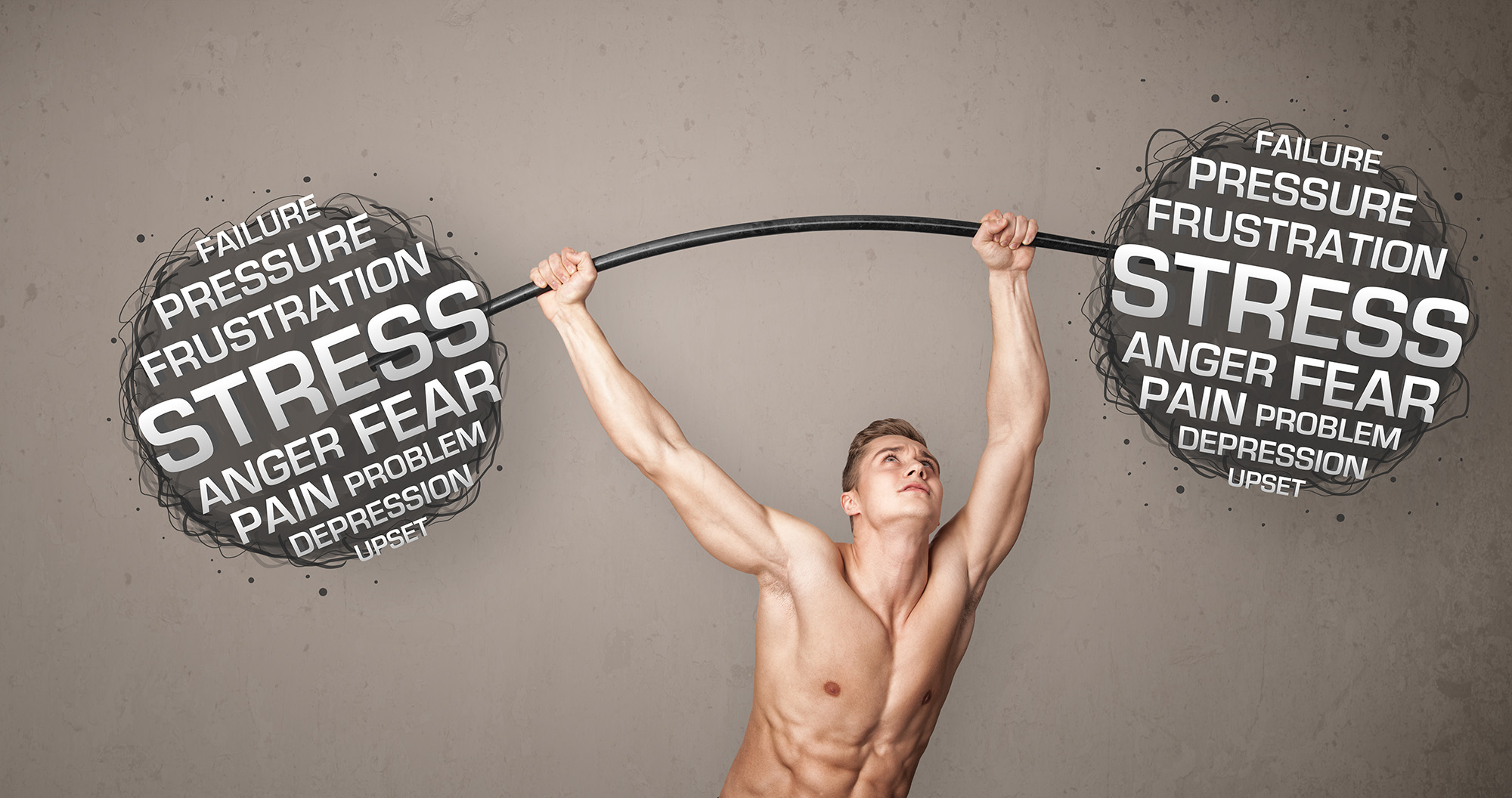What Type of Stress Do You Have?
Stress is a mental and physical phenomenon. In all cases, the physical responses are identical. The triggering of the “fight or flight response” is at the root of all types of stress. But the experiences of stress are quite different. While occasional bursts of acute stress may be inconsequential, frequent episodes of acute stress, or episodic stress, can be as damaging as chronic stress.
Understanding yourself, your stressors and the type of stress you are experiencing is the first step to learning how to shift yourself from a state of stress to a relaxed state.
Most people who are under stress are unaware that they are stressed. It crept up on them over a period of time increasing intensity and frequency. Like the frog in the boiling pot, their tolerance for stress became so commonplace that they didn’t even noticed a difference. The signs of stress go unnoticed until the condition leads to a crisis.
Be aware that what is a stressor for one person is a re-energizer for another. Where an extraverted individual might find talking to people and going to parties a great way to let out steam, an introverted person may become more stressed by that very same situation. And where an introverted person may unwind easily by finding a space where they can have some alone time with they thoughts, an extraverted person may become stressed and feel the need to get out of the house.
Learning about who you are in relation to your stress, recognizing your stress behaviors, and knowing which actions contribute to your stress and which release it is necessary in learning to let go of stress.
The following categories of stress are to be considered only in that they have apparently distinctive and different characteristics. While everyone recognizes these conditions not everyone is aware that they are all states of stress.
Situational or Acute Stress
is the immediate response to any kind of change, either good or bad. The brain gives identical signals for a roller coaster ride as it does for a near accident. Acute stress is temporary and normal and won’t cause any lingering health problems. Isolated episodes of stress can actually keep your biological responses in practice for when you really do need to turn on the fight or flight response.
For some people it can become a problem when they become upset – and is especially embarrassing in social and professional situations. Strong emotions such as anger and fear ignite the fight or flight response. Uncontrollable rage takes over and they may say or do things they later regret. Or not – since sometimes they don’t even remember what they did.
With hypnosis, you can learn to keep your composure during ordinary stressful situations. Your mind can be trained to remain calm and resourceful putting you in a more powerful position.
Chronic Stress
is a response to routine pressure or overwhelming responsibilities. Chronic stress is an internal response to external conditions. While it may feel like the problem is coming from outside, the source of frustration is the conflict in your own mind. Overthinking, worry, depression and mood swings are just some of the symptoms of chronic stress. The tense strain of prolonged stress can lead to a long list of physical and mental problems including stomach disorders, insomnia, high blood pressure, heart disease, stroke, suppressed immune function, lack of concentration and difficulty thinking, irritability and anger, depression and exhaustion. Chronic stress often goes unnoticed as it usually creeps up slowly over a long period of time. Meanwhile the physical and mental risks of long-term stress increase to dangerous proportions. It is often not until headaches, digestive problems, agitation, mood swings or some other secondary problem emerges that hazardous stress levels are recognized.
Panic attacks
or as they are commonly called – Anxiety Attacks – is not stress as we commonly think of it. It is an extremely physical experience and yet nothing is physically wrong. Medical science cannot explain why some people will have them and others not. They are intensely frightening and come on suddenly, and without any apparent cause. The person may be completely relaxed and in normal circumstances when they begin to feel lightheaded and breathing becomes difficult. Their heart begins to race and they may start to feel numbness in their arms and legs. As the symptoms intensify, many people mistakenly believe that they are going crazy or are having a stroke or a heart attack.
Panic attacks can be singular events. However, some people begin having them regularly and with greater and greater force. Panic attacks have nothing to do with fearful situations or courage. A panic attack is more like a glitch in the part of the brain called the “amygdala” where the fight or flight response is triggered. Not to trivialize the condition, but it can be more easily understood as being analogous to a case of the hiccups. The fight or flight response just seems to keep firing off suddenly without provocation.
Hypnosis provides a way to calm and reboot the fight or flight system back to normal so that panic attacks become a thing of the past. You can stop an attack before it occurs, neutralize the mechanical recurrence of episodes and go back to living a life free from the fear of panic attacks.
Traumatic Stress
is triggered by lingering memories of terrifying events such as war, assault, accidents and natural disasters. After these types of events it is normal to feel afraid and nervous. Symptoms of traumatic stress will usually subside within a month.
Most people with traumatic stress do not develop what is known as PTSD, or Post-Traumatic Stress Disorder – which has prolonged symptoms. Negative thoughts and feelings, anxiousness, panic, sleeplessness and depression persist for a much longer duration in PTSD. Episodes of reliving the traumatic event through vivid memories, flashbacks and nightmares can recur for months and even years. Sometimes the symptoms do not even appear until well after the actual traumatic event.
PTSD, formally believed to require long-term exposure therapies and/or drugs, can now be dramatically reduced with hypnosis. Unlike lengthy exposure therapies, hypnosis uses a process of gentle changes that work quickly and effectively. Most PTSD symptoms are either completely eliminated or greatly reduced after only six sessions – and many notice relief after just one or two sessions.
Phobias
are specific fears that range from flying to spiders. People with these fears know that these are irrational fears, but this makes no difference. They still panic when presented with it. Phobias are the result of what is called a “faulty pattern match.” Pattern matches are unconscious responses to specific conditions. When you see a red light, you automatically stop your car; when someone reaches to shake your hand, you reach yours to grasp it. A phobia is the result of an event, or series of events, that has caused the mind to register an object as dangerous when, in fact, it is not.
There are thousands of phobias and those who suffer from them feel helpless to stop the panic when they occur. Trying to face the fear does nothing to change it. The fight or flight response is automatically ignited in the unconscious. If you suffer with a phobia, you know how it restricts your life. Elevators may become off limits, so walk up hundreds of stairs in a high rise or you drive thousands of miles to avoid flying. Social and career choices become hindered in order to avoid situations associated with your phobia.
The initial cause of a phobia, most often, is not remembered. Oddly, it is usually quite insignificant in hindsight, but the pattern match was made during a sensitizing event. Through time, this fear was compounded by subsequent experiences and it becomes exaggerated.
With hypnosis, we can turn back the clock and see the sensitizing event from a wised perspective, replacing the associated fear with a new understanding. By gaining insight and reframing the memory, you can neutralize the fight or flight response so that the object or situation has no effect on you.
Hypnosis puts you back in control of your life. Because stress is activated by the unconscious, hypnosis can make profound changes directly with the root cause. At District Hypnosis, we work with you to lower your stress levels and responses so you can live free from the burden of stress and debilitating fears.

